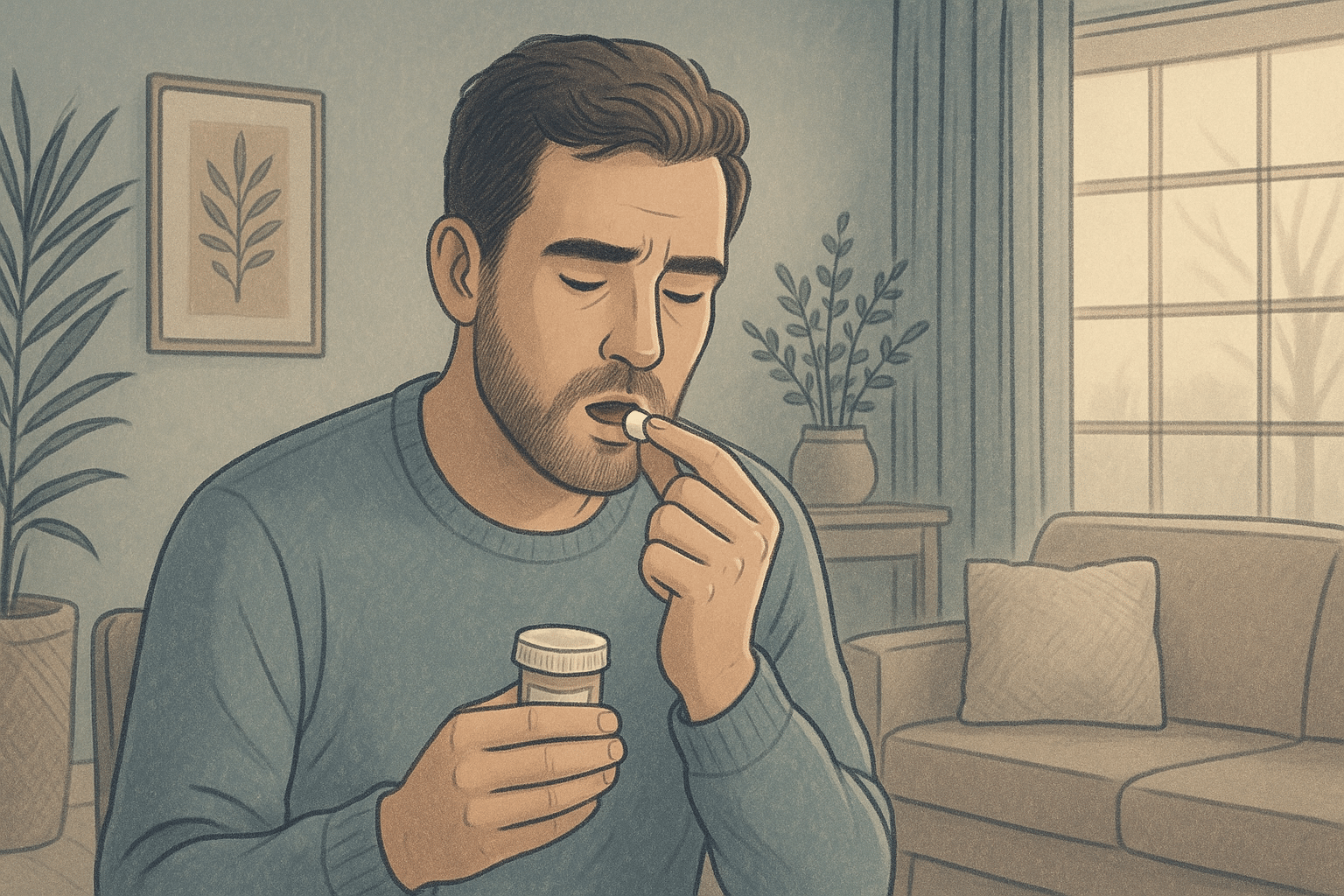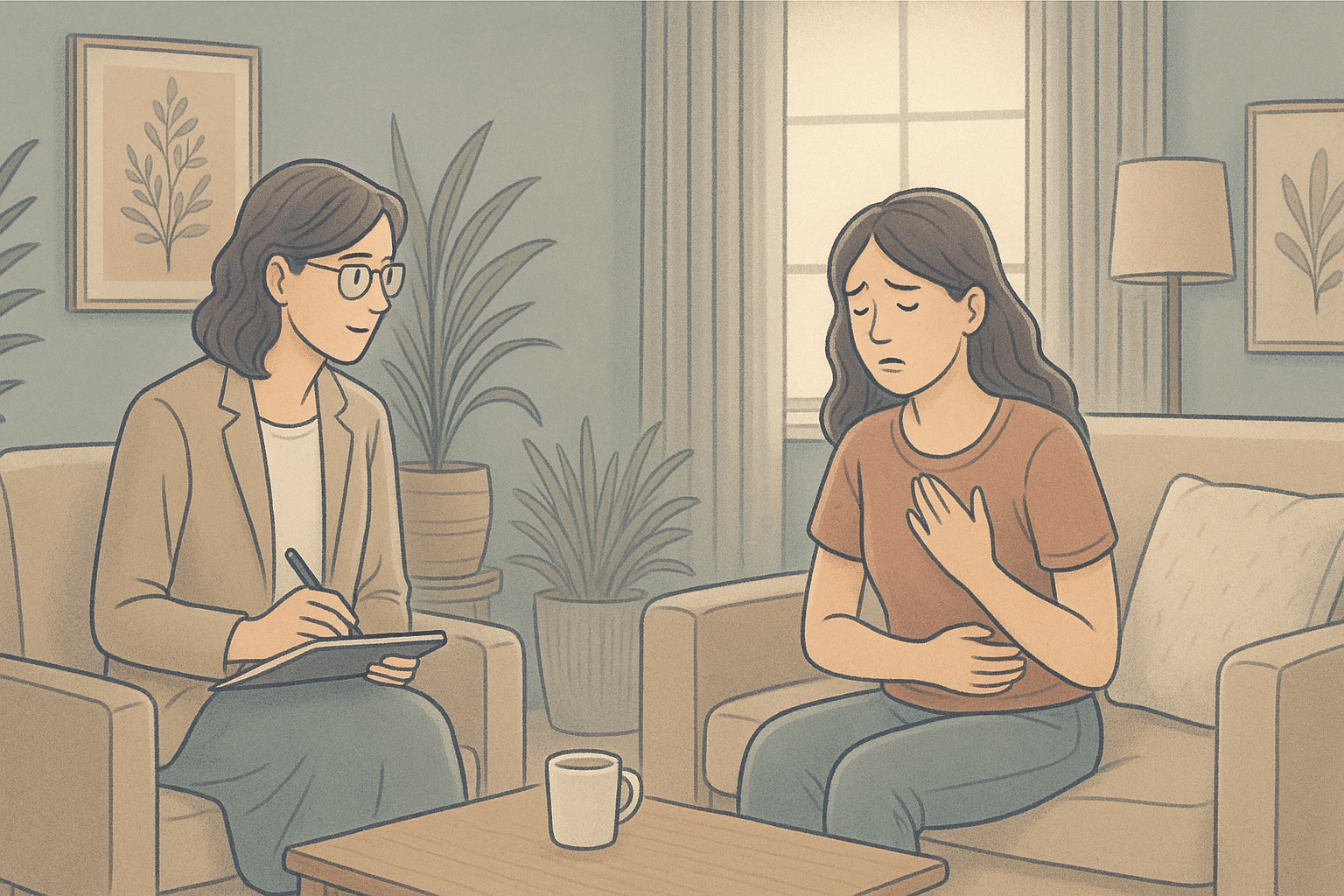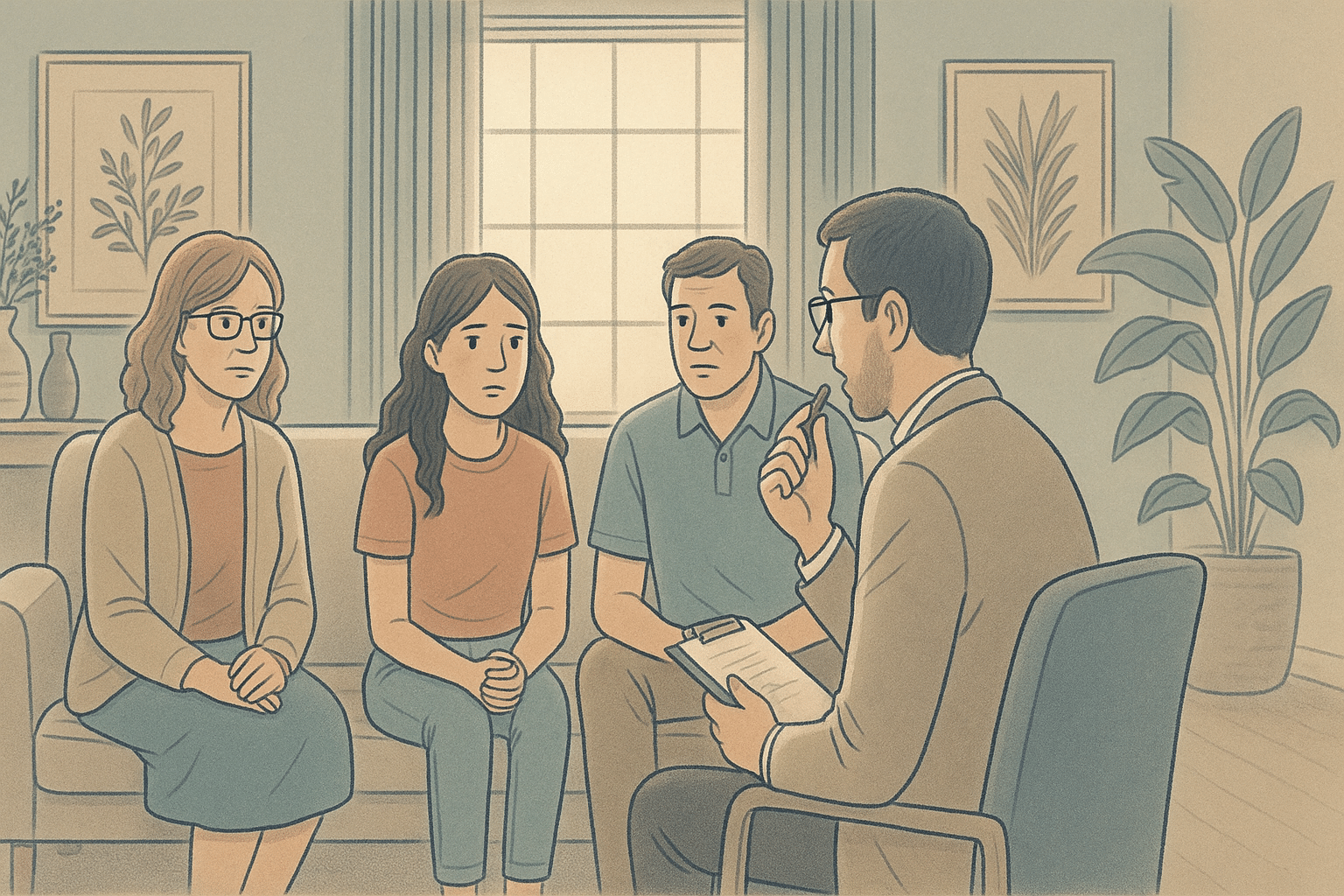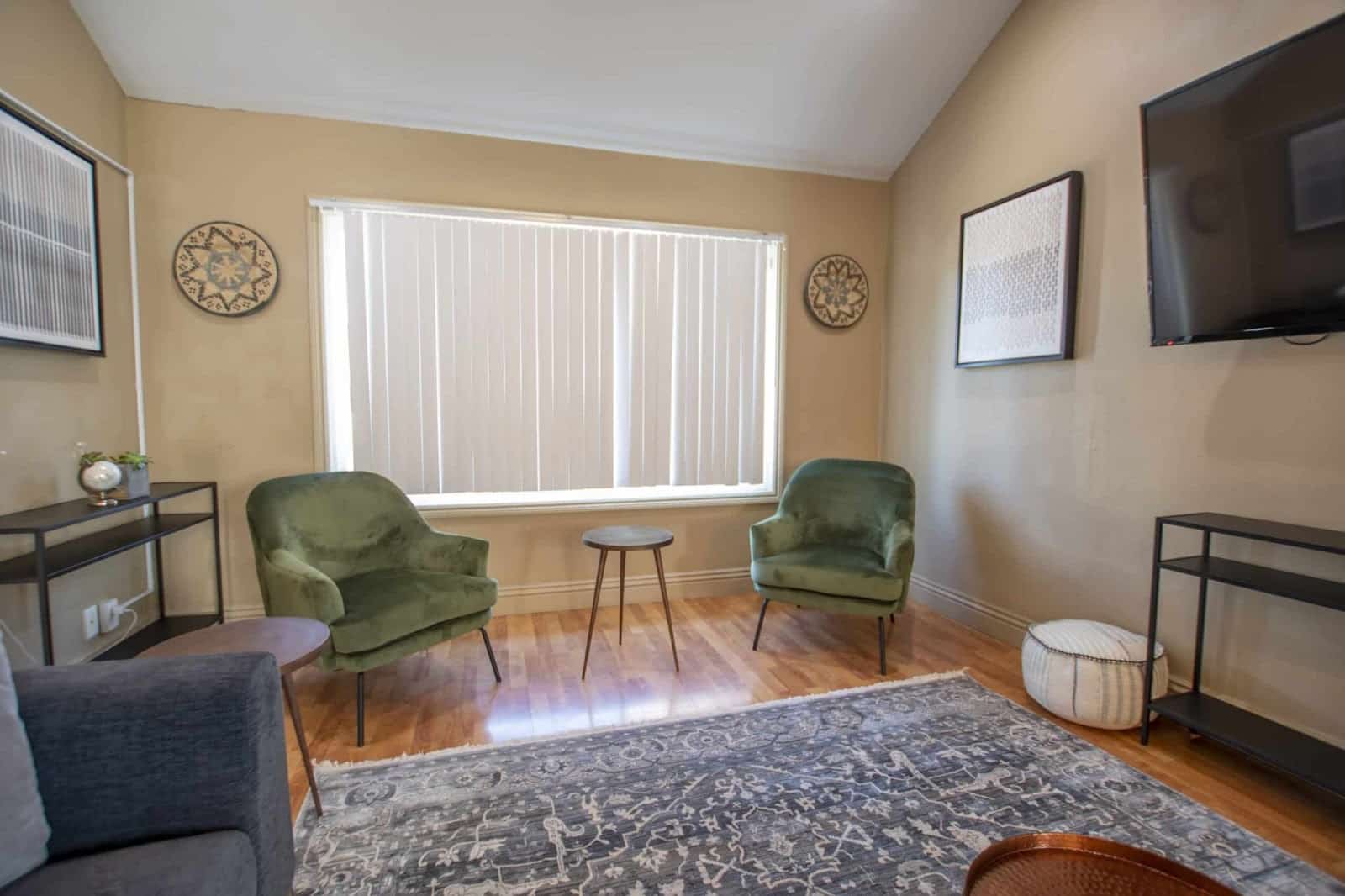Key Takeaways
- Brief psychotic disorder is highly treatable with most patients achieving complete recovery within 1–3 months of symptom onset.
- Atypical antipsychotic medications are the first-line treatment, complemented by psychotherapy for optimal outcomes.
- Unlike chronic conditions like schizophrenia, brief psychotic disorder is temporary by definition, lasting less than 1 month.
- Early intervention significantly improves recovery outcomes and reduces the risk of symptom recurrence.
- At A Mission for Michael, we offer comprehensive treatment plans customized to each individual’s unique needs when addressing brief psychotic disorder.
Brief Psychotic Disorder Explained
Brief psychotic disorder is a short-term mental health condition characterized by the sudden onset of psychotic symptoms that last for more than a day but less than a month.
Unlike other psychotic disorders, patients with brief psychotic disorder typically return to their previous level of functioning once the episode resolves. This condition often emerges in response to severe stress or trauma, though it can also occur without an obvious trigger.
Symptoms
The symptoms of brief psychotic disorder mirror those seen in other psychotic conditions but are distinguished by their sudden onset and short duration. Patients experiencing brief psychotic disorder may exhibit delusions, which are fixed false beliefs that persist despite evidence to the contrary. These might include paranoid delusions that others are plotting against them, grandiose delusions about having special powers, or somatic delusions about their body functioning.
Hallucinations are also common, particularly auditory hallucinations (hearing voices), though visual, tactile, or olfactory hallucinations can occur as well. Disorganized speech patterns that make communication difficult and disorganized or catatonic behavior that interferes with daily functioning are additional symptoms we observe. Many patients also experience emotional disturbances, including inappropriate emotional responses, extreme agitation, or profound confusion.
Types and Duration
Brief psychotic disorder is classified into three distinct subtypes based on triggering factors and presentation. Brief psychotic disorder with marked stressor occurs in response to identifiable traumatic events or extreme stressors, such as natural disasters, severe accidents, or witnessing violence.
Brief psychotic disorder without marked stressor develops without any apparent trigger, making it somewhat more puzzling diagnostically. The third subtype, brief psychotic disorder with postpartum onset, occurs within four weeks after childbirth and may be related to hormonal fluctuations and the psychological stress of becoming a parent.
Difference From Schizophrenia
The primary distinction between brief psychotic disorder and schizophrenia lies in the duration and outcome of symptoms. While schizophrenia is a chronic condition typically requiring lifelong management, brief psychotic disorder resolves completely within one month. Schizophrenia also requires symptoms to persist for at least six months for diagnosis, whereas brief psychotic disorder is, by definition, short-term.
Another key difference is the level of functional recovery. Patients with brief psychotic disorder generally return to their baseline level of functioning after the episode, while those with schizophrenia often experience some degree of ongoing functional impairment. The prognosis for brief psychotic disorder is significantly more favorable, with most patients making a full recovery with appropriate treatment.
| A Mission For Michael: Expert Mental Health Care Founded in 2010, A Mission For Michael (AMFM) offers specialized mental health care across Southern California, Minnesota, and Virginia. Our accredited facilities provide residential and outpatient programs, utilizing evidence-based therapies such as CBT, DBT, and EMDR. Our dedicated team of licensed professionals ensures every client receives the best care possible, supported by accreditations from The Joint Commission and the California Department of Health Care Services. We are committed to safety and personalized treatment plans. Start your recovery journey with AMFM today! |
Curability and Recovery
Complete Recovery Rates
Research indicates that individuals diagnosed with brief psychotic disorder achieve complete recovery within the 1-month timeframe. This recovery typically includes full resolution of psychotic symptoms and return to previous occupational, social, and interpersonal functioning. The prognosis is particularly favorable when treatment begins promptly after symptom onset and when there’s a clear precipitating stressor that can be addressed through therapeutic interventions.
Patients with good pre-episode functioning, strong social support systems, and no personal or family history of psychotic disorders tend to have the most positive outcomes. The presence of mood symptoms alongside psychotic features may actually indicate a better prognosis, as these cases often respond well to treatment and have lower rates of symptom recurrence compared to cases with predominantly psychotic symptoms.
Timeline for Recovery
Recovery from brief psychotic disorder typically progresses through several stages. In the acute phase, which lasts from symptom onset until initial stabilization, the focus is on safety, symptom reduction, and diagnostic assessment. This phase may last from a few days to a couple of weeks, depending on individual factors and treatment response. Most patients notice significant symptom improvement within the first week of starting antipsychotic medication.
The stabilization phase follows, usually lasting 2–4 weeks, during which remaining symptoms gradually resolve and functional recovery begins. This phase focuses on continuing medication management while introducing therapeutic interventions to process the psychotic experience and develop coping strategies. The final maintenance phase transitions patients to longer-term support, focusing on preventing recurrence and addressing any precipitating factors that may have contributed to the episode.
Factors Affecting Outcomes
Some factors like good premorbid functioning, sudden symptom onset, presence of precipitating stressors, shorter duration of untreated psychosis, strong social support, and no family history of psychotic disorders aid recovery.
Meanwhile, poor premorbid functioning, gradual symptom onset, absence of clear stressors, longer duration of untreated psychosis, limited social support, and family history of psychotic disorders may reduce chances of full recovery.
Medication Options

Medication plays a crucial role in the treatment of brief psychotic disorder, typically serving as the first-line intervention during the acute phase.
Antipsychotic Medications
Second-generation (atypical) antipsychotics are the medications of choice for treating brief psychotic disorder due to their efficacy and more favorable side effect profile compared to first-generation antipsychotics.
These medications work primarily by blocking dopamine receptors in the brain, which helps reduce hallucinations, delusions, and disorganized thinking. Commonly prescribed atypical antipsychotics include risperidone (Risperdal), olanzapine (Zyprexa), quetiapine (Seroquel), aripiprazole (Abilify), and ziprasidone (Geodon), each with slightly different properties and side effect profiles that allow for personalized treatment.
How Long To Take Them
In general, most patients require antipsychotic medication for the duration of acute symptoms plus a short continuation period. Typically, we recommend continuing medication for 1–3 months after symptom resolution to reduce the risk of immediate symptom recurrence.
After this period, a gradual tapering of medication under close clinical supervision may be appropriate for many patients. This tapering process usually extends over several weeks to minimize the risk of withdrawal symptoms or symptom rebound. Some patients may benefit from a longer period of maintenance treatment, particularly if they have risk factors for recurrence or have experienced multiple episodes.
Side Effects
While antipsychotic medications are effective for treating psychotic symptoms, they can cause significant side effects that need to be carefully monitored and managed. Common side effects of atypical antipsychotics include weight gain, metabolic changes (including elevated blood sugar and lipid levels), sedation, dizziness, and dry mouth.
More serious but less common side effects include extrapyramidal symptoms (movement disorders), tardive dyskinesia (involuntary movements that may become permanent), and neuroleptic malignant syndrome (a rare but potentially life-threatening reaction).
Work closely with your health care provider and report any adverse effects promptly so adjustments can be made to your medication regimen.
Therapy Approaches

While medication addresses the biological aspects of brief psychotic disorder, psychotherapy is equally important for comprehensive treatment.
Psychotherapy Benefits
Cognitive Behavioral Therapy (CBT) has shown particular effectiveness for brief psychotic disorder, helping patients identify and challenge distorted thoughts and beliefs while developing rational responses to unusual perceptions. This structured approach helps patients distinguish between reality and psychotic experiences, reducing distress associated with residual symptoms and providing tools to manage stress that might otherwise trigger relapse.
Supportive psychotherapy provides validation, encouragement, and practical assistance during recovery, helping patients rebuild confidence and process the emotional impact of their psychotic episode. For trauma-related brief psychotic disorder, trauma-focused therapies may help patients process the triggering event and reduce its psychological impact, potentially preventing future episodes.
Family Support Therapy

Family involvement is crucial in the treatment of brief psychotic disorder, as family members often serve as the primary support system during and after the psychotic episode.
Family therapy educates loved ones about the nature of psychosis, teaches effective communication strategies, and helps families develop a supportive environment that facilitates recovery.
Patients with strong family support have better outcomes and lower rates of relapse than those without such support.
Recovery and Hope: AMFM’s Comprehensive Approach
Brief psychotic disorder is curable, with the vast majority of patients achieving complete recovery within weeks of proper treatment. At A Mission For Michael, our specialized treatment approach combines immediate symptom stabilization with long-term recovery planning, ensuring that each patient receives personalized care customized to their unique circumstances.

Our facilities create a warm environment that aids treatment and recovery.
Our multidisciplinary teams across California, Virginia, and Washington utilize proven therapies including Cognitive Behavioral Therapy, family support interventions, and carefully managed medication protocols. What sets AMFM apart is our commitment to comprehensive care that extends beyond symptom resolution. We help patients process their psychotic experience, rebuild confidence, and develop effective coping strategies to prevent recurrence.
Our integrated approach addresses both the biological and psychological aspects of brief psychotic disorder, supporting patients through every stage of recovery while providing families with the education and support they need during this difficult time.
Frequently Asked Questions
Can brief psychotic disorder turn into schizophrenia?
While brief psychotic disorder and schizophrenia are distinct conditions, approximately 10–25% of patients initially diagnosed with brief psychotic disorder may eventually receive a diagnosis of schizophrenia if symptoms recur or persist beyond the one-month threshold. Factors that increase this risk include gradual symptom onset, lack of precipitating stressors, family history of schizophrenia, and predominantly negative symptoms.
How common is brief psychotic disorder?
Brief psychotic disorder is relatively rare, affecting 1–4 cases per 100,000 people annually. It accounts for approximately 9% of first-onset psychosis cases and is more common in women, particularly during the postpartum period. The typical age of onset ranges from late adolescence to early adulthood (20–30 years).
What triggers brief psychotic episodes?
Common triggers include severe emotional trauma (death of a loved one, relationship breakdown, physical assault), major life transitions (college, immigration), natural disasters, combat exposure, and childbirth. The condition represents an acute stress response in psychologically vulnerable individuals when normal coping mechanisms are overwhelmed.
Is medication always necessary for treatment?
While medication is typically recommended as first-line treatment, the necessity varies based on symptom severity and individual factors. Most clinical guidelines recommend short-term antipsychotic medication for rapid symptom control, though patients with mild symptoms and strong support systems may sometimes benefit from psychotherapy and supportive interventions alone.
How do I help a loved one experiencing brief psychosis?
Help them access professional evaluation immediately, as early intervention improves outcomes significantly. For personalized guidance on brief psychotic disorder treatment options, contact A Mission for Michael. Our experienced team provides comprehensive care that addresses both immediate symptoms and long-term recovery needs.






